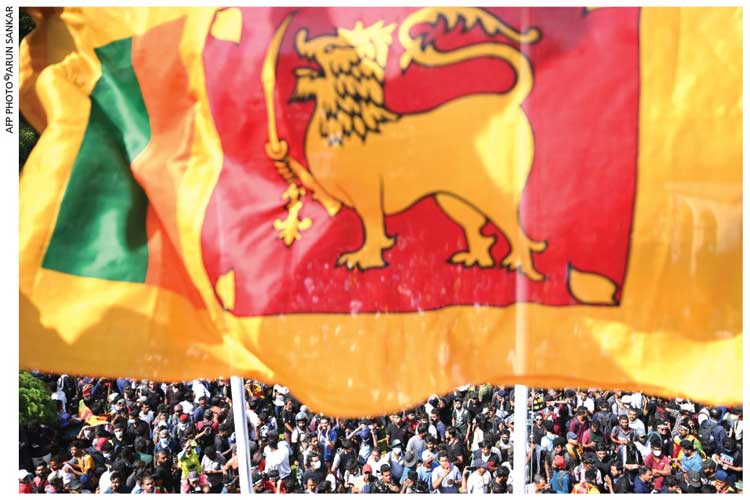SRI LANKA TODAY
THE QUESTION OF FEDERALISM
Dr. Jehan Perera explains how federalism is not a precursor to secession
President Ranil Wickremesinghe’s pledge to resolve the country’s longstanding ‘ethnic conflict’ by the 75th anniversary of independence on 4 February could be the optimistic base upon which other positive developments can be built.
If this hope is translated into reality, it can generate a groundswell of international support that will be economically beneficial to the country.
There are four reasons why the ethnic conflict might prove to be resolvable unlike in the past.
First and most important is the leadership that the president can bring to the negotiating table. The second reason is that ruling party members won’t wish to oppose the president on whose beneficent attitude they depend.
It’s worth noting that in March, Wickremesinghe will obtain the constitutional power needed to dissolve parliament and call for fresh elections.
Thirdly, most of the opposition parties in parliament are agreeable to resolving the ethnic conflict. And the fourth reason is the sense among the general population that the country needs fundamental reforms in the aftermath of the economic collapse that took place last year.
The Tamil National Alliance (TNA), which is the largest Tamil political party, has responded positively to Wickremesinghe’s announcement. Its members say that they will seek a solution on the basis of federalism.
TNA spokesman M. A. Sumanthiran has pointed out that there are more than 25 countries in the world that have a federal system in place. Those nations are united and represent over 40 percent of the world’s population. The US, India, Switzerland and Malaysia are examples of federal states.
The key feature in Sri Lanka will be that the government won’t be able to arbitrarily change the way a provincial council (PC), which holds devolved power, is governed. Tampering with the powers of provincial councils under a federal arrangement can only be done according to the constitution, which will remain the supreme law.
From the time the Tamil polity wanted federalism in the 1950s, the Sinhalese polity rejected it as being injurious to the country’s national sovereignty and security. This is because of the misapprehension that federalism might be the first step to secession.
And the former Soviet Union and Yugoslavia are cited as examples of federal states that broke up along the lines of their federal units.
The Sinhalese position is that a unitary form of government will protect the country from being divided in this manner. However, even unitary states have divided if they didn’t manage their ethnic relations in a constructive manner as was seen when South Sudan ceded from Sudan and Kosovo declared independence from Serbia.
Across the Palk Strait from Sri Lanka is a good example of a diverse and huge country that’s held together as one, and is getting stronger and stronger, both in terms of its economic might and international stature.
The Indian form of government is neither wholly federal nor unitary but can take on aspects of either as the situation demands. During peace times, it is federal; and under stress it can become unitary. This was the solution that India and Sri Lanka agreed to in the Indo-Sri Lanka Accord of 1987, and which was distorted in the 13th Amendment.
Former President Mahinda Rajapaksa recently announced in parliament that he is in favour of discussions on the 13th Amendment Plus. India had been Sri Lanka’s saviour during the height of the economic crisis and provided the island with far more assistance than any other country.
With India’s support for a political solution that’s based on its own learning and experience, a viable resolution can be found and Sri Lanka will be able to forge ahead as a truly united nation to economic development.
Unfortunately, the PCs, which were formulated in 1987 as a solution to the ethnic conflict and to represent the wishes of the people of each province, don’t do so anymore. For the past four years, they have functioned only as administrative bodies run by presidentially appointed governors who act arbitrarily without consulting the people of the provinces.
During this period, elections to the provincial councils have not been held; and rather than being institutions of devolved power, the PCs now represent the centralised power of the state.
They were meant to provide the people of each province with the power to decide on locally relevant matters. But this right has been denied to them; and this could be the main reason for the demand for federalism coming to the fore once more.




